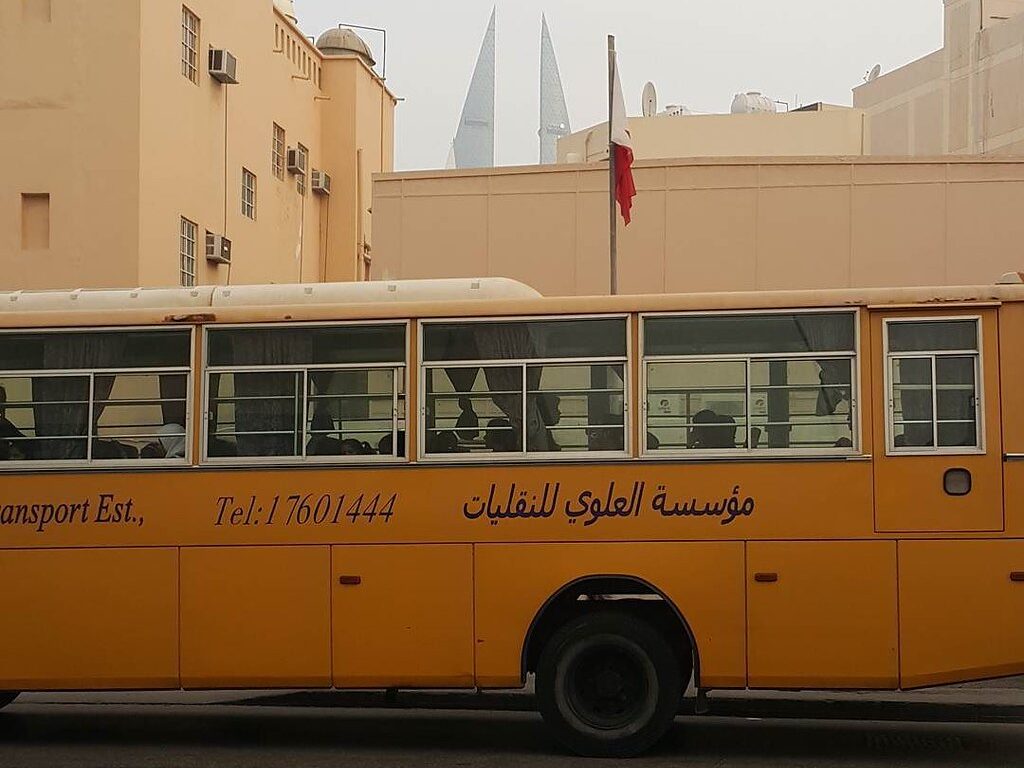Accessible public transportation is essential for assisting people with disabilities to live independent lives.
There is still much to be done, despite the fact that Bahrain’s government has made great strides in recent years to improve accessibility for people with disabilities.
The deaf community is one group in Bahrain that has struggled with using public transportation in Bahrain.
However, modern technology has significantly improved the mobility of deaf individuals in Bahrain.
Problems Deaf People in Bahrain Face Accessing Public Transportation
Public transportation has presented a number of challenges for deaf people in Bahrain.
Communication is one of its main challenges.
The use of sign language by many deaf people can be challenging when there is no one nearby who can understand their language.
This is especially true when using public transportation, where it’s often necessary to communicate in order to buy tickets and find your way around.
Safety is another issue that deaf people must deal with in Bahrain.
Deaf people may not be able to hear announcements or warnings in emergency situations on public transportation, putting them in danger.
Some deaf people might rely on visual cues to find their way around, which can be challenging in poorly lit or confusing environments.
Improving Accessibility with Technology

To improve accessibility for deaf people, the government in Bahrain has put several initiatives into place.
The development of technology to aid deaf people in navigating public transportation has been one of the most important steps.
An example is the use of digital displays on buses and trains, which can offer real-time information on routes, schedules, and delays.
This information is displayed in both Arabic and English and includes visual cues to make it easy to understand.
Mobile applications that can assist the deaf in route planning and ticket purchases are another new piece of technology that has been introduced.
These apps offer real-time updates on delays and disruptions in addition to information on bus and train schedules, ticket prices, and routes.
Deaf people now have an easier time organizing their travel plans thanks to technology, which helps them avoid the frustration of missing a bus or train.
The government has trained transportation staff in sign language which has gone a long way in enabling employees to interact with deaf individuals effectively and providing them with information and assistance as needed.
Deaf individuals who might have trouble communicating with other passengers or staff have found this to be especially helpful.
Benefits of Improved Accessibility
The deaf community in Bahrain has benefited significantly from the country’s improved public transportation accessibility.
Growing independence has been one of the most important advantages.
Being able to access the information and assistance they require to use public transportation has made it easier and more convenient for deaf people to travel.
The deaf community has experienced less social isolation because of to improved accessibility.
With easier access to social gatherings and meetings, deaf people have more opportunities to interact with others and take part in their communities.
In addition to these advantages, improved accessibility has been advantageous economically.
Deaf people can now commute to work more easily, improving their employment opportunities and contributing to Bahrain’s economy.
Challenges in Implementing Accessibility Measures
There are still issues that need to be resolved despite the advancements made in increasing accessibility for the deaf community.
Costs associated with staff training and technology implementation are one of the major obstacles.
Even though the advantages of improved accessibility are obvious, putting these measures into place can be expensive and difficult to fund.
The need for ongoing support and training for transportation staff is another challenge.
While training staff in sign language is a crucial first step, ongoing training, and assistance are required to make sure that staff members can continue to interact with deaf people in an effective manner.
Also to ensure that the needs of the deaf community are recognized and met, advocacy and awareness-raising efforts must continue.
One way to foster a more accepting and understanding society is to increase public awareness of the difficulties the deaf community faces when trying to access public transportation.
Final Note
For people with disabilities to live independent lives, public transportation must be accessible.
With technology and training, Bahrain’s government has made significant strides toward enhancing accessibility for the deaf community.
The deaf community has benefited a lot from this, including increased independence, decreased social isolation, and more job opportunities.
There are still issues that must be resolved, some of which include: providing funding for accessibility improvements and continuing education and assistance for transportation staff.
To make sure that the needs of the deaf community are recognized and met, ongoing advocacy and awareness-raising are also required.
With serious efforts and financial investment, Bahrain can continue to increase accessibility for all members of its society, including people with disabilities.
For those who are looking for additional support, Unspoken Language Services offers interpreting services to help bridge the communication gap between the deaf and hearing communities.
Thumbnail Photo Credit to: Photo by justDONQUE.images

